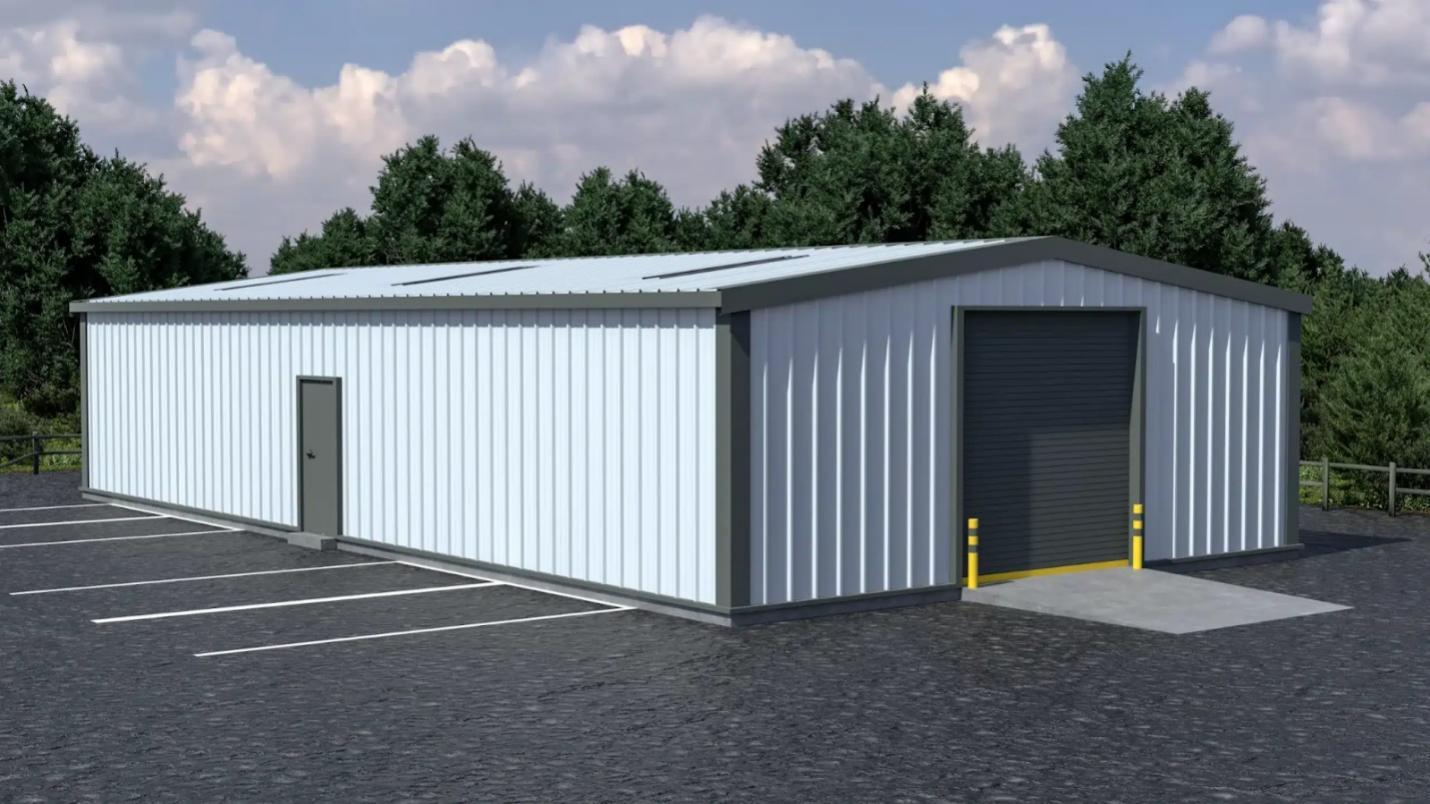Selecting the appropriate material for a personal workshop or any workshop structure is essential for its structural integrity, long-term durability, and affordability. Steel presents numerous benefits compared to traditional materials like wood or concrete, making it a favored option for workshop construction.
Steel provides workshop owners with a dependable and long-lasting solution for their construction demands because of its remarkable durability, structural strength, and versatility in design and customization.
The expansive steel building is versatile and suitable for a wide range of applications. Whether you need a standard steel workshop shed, a storage workshop, or a commercial workshop, we have you covered. Accommodate all needs and provide custom-fit solutions tailored to your space and requirements.
Why Choose Steel for Workshop Buildings?
Steel constructions provide a multitude of benefits over alternative building materials. With exceptional strength, durability, and cost-efficiency, steel stands out as a preferred choice. Additionally, its high level of customization enables builders to craft structures tailored to precise design and functional needs.
Durability and Strength
Steel is preferred for workshop buildings in large parts due to its outstanding longevity and structural strength. The workshop building will last for a long time since steel retains its structural integrity even in severe weather, unlike wood, which is prone to rotting and termite infestation.
Further, steel has a higher load-bearing capacity than other materials, which eliminates the need for interior support columns and permits greater clear-span areas. For workshop plans that need plenty of open floor space to accommodate machinery, equipment, and workspace, this feature is very helpful. Steel is a strong material that is perfect for both residential and commercial workshop buildings as it can handle heavy machinery, equipment vibrations, and other dynamic stresses that are typical in industrial settings.
Flexibility in Style and Personalization
Workshop owners are drawn to steel because of its huge benefit of design and modification options. Steel enables for a wide choice of architectural designs and layouts to fit different workshop requirements and tastes, unlike other materials that restrict design possibilities.
Furthermore, steel can be expanded and modified with flexibility, giving workshop owners the ability to modify their structures to accommodate future development or changing needs. For workshop facilities that could experience functional changes, equipment upgrades, or a rise in workspace requirements over time, this scalability is crucial. With steel, alterations like including more bays, mezzanine levels, or additions can be built into the current building with ease, reducing construction costs and downtime.
Construction Speed and Cost-Efficiency
When it comes to cost, steel has a number of benefits that make workshop construction more affordable and efficient overall. First of all, steel is a more affordable material than wood or concrete, providing exceptional value in terms of endurance, durability, and reduced maintenance throughout the course of the building’s life. Workshop owners can now afford to spend less on operating expenses due to the decreased need for maintenance and repairs, freeing up funds for other business ventures.
In addition, steel’s prefabricated components and lightweight nature allow for quicker construction times as compared to traditional building materials. Standardized steel components that are produced off-site enable efficient assembly procedures, which drastically cut labor costs and construction schedules. Steel construction provides workshop owners a way to reduce downtime and accelerate operations and a competitive advantage in terms of speed and efficiency.
Design
Design is an aspect often overlooked when considering steel buildings for purchase. However, it’s essential to factor it in. With steel frame constructions, you have the flexibility to create column-free interiors, opening up opportunities for designers to innovate and craft visually striking shapes and styles for a truly unique structure.
Sustainability of the Environment
Because steel is recyclable, energy-efficient, and has a little environmental impact, it is an environmentally benign material choice for workshop buildings in a time when environmental sustainability is becoming more and more important. Steel is a highly recyclable material that is used extensively worldwide. Its high scrap value encourages recycling and lowers the need for raw materials. Owners of workshops can support sustainable building practices by reducing waste and conserving resources by utilizing steel in their construction.
Moreover, steel buildings are naturally energy-efficient, providing excellent insulating qualities that lower heating and cooling expenses over the building’s life. Steel buildings’ airtight design reduces energy loss, giving workshop occupants excellent thermal efficiency and indoor comfort. Furthermore, the reflecting qualities of steel might lessen the effects of urban heat islands’ impacts in crowded locations, supporting the sustainability of the ecosystem generally.
Conclusion
In conclusion, a variety of benefits, including longevity, adaptability, affordability, and environmental sustainability, lends a huge advantage for the choice of steel for workshop buildings. Steel is also an appealing option for industrial facilities, commercial workshop buildings, and home workshops due to its affordability, speed of construction, and environmental advantages.
Steel continues to be the most popular material for workshop construction as demand for long-lasting, cost-effective, and environmentally friendly building solutions rises. This means that workshop owners will continue to receive optimal performance and value from steel workshops for years to come.




